ENERGY CBD (500, 250, 83mg) SPRAY & ROLL ON PRODUCT SUMMARY
Organic Full Spectrum Hemp Flower
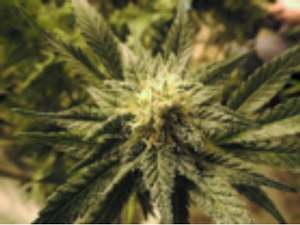
Flaxseed Oil

Jojoba Oil
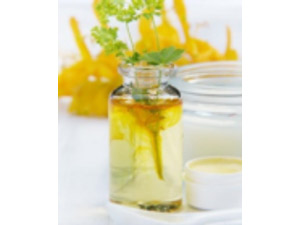
Peppermint

Lemongrass

Bergamot
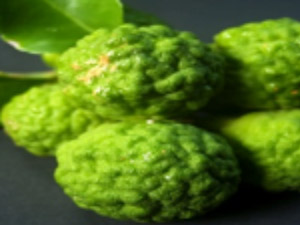
Frankincense

Red Thyme

Pine

Ginger

Cassia Cinnamon

Eucalyptus
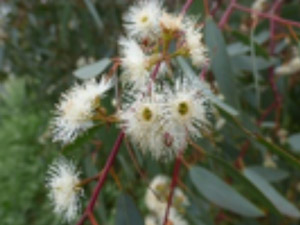
Sweet Orange

Lime

Rosemary

Fractionated Coconut Oil
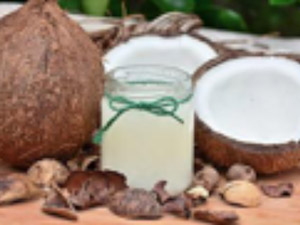
Ashwaganda

Lion’s Mane Mushroom

Ginseng Root

Benefits:
- Peppermint may treat headaches, may improve mental function, may reduce pain, may treat muscle aches, may treat itching, may reduce stress, may treat cramps and other menstruation problems.
- Lemongrass may act as an antibacterial, may act as an anti-inflammatory, may act as a pain reliever, may relieve headaches, may help to relieve stress and anxiety.
- Bergamot may be used to alleviate stress, may be used for skin infections, may treat acne, may aid with non-arthritic joint pain, may aid with headaches, may aid with ringworm.
- Frankincense may reduce symptoms of osteoarthritis and rheumatoid arthritis inflammation, may soothe skin, and reduce the appearance of blemishes.
- Red Thyme may treat acne, may help with cough and other respiratory tract infect infections, and may prevent heart disease.
- Pine may produce anti-inflammatory effects, may ease symptoms of eczema, and rosacea, may alleviate pain from muscle pain and arthritis.
- Ginger may assist with nausea, may have anti-inflammatory properties, may help with skin inflammation and skin blemishes, may promote healthy aging, may assist in rheumatoid arthritis pain.
- Lemon Eucalyptus may prevent mosquito and deer tick bites, may treat osteoarthritis and other joint pain, may reduce muscle spasms, and may treat toenail fungus onychomycosis.
- Sweet Orange may contain large amounts of vitamin C, may contain large amounts of potassium, may prevent high blood pressure, is an anti-inflammatory, may cause anti-aging properties.
- Lime high in vitamin C and antioxidants may reduce heart disease risk, may prevent kidney stones, may promote healthy skin, may boost immunity.
- Rosemary may help to relieve pain, may improve brain function, may repel bugs, may ease stress, may reduce joint inflammation, may increase circulation, may help fight fatigue.
Warnings:
For external use only. Do not use if you are allergic to any of this product’s ingredients. When using this product, use only as directed. Stop use and see a doctor if condition worsens or symptoms persist for more than 7 days. Do not use on puncture wounds, cuts, or abrasions. Do not bandage or use a heating pad.
Keep out of reach of children. If swallowed, get medical help, or contact a Poison Control Center immediately. Read and follow all directions and warnings on this label.
Directions:
Apply a small amount to affected area no more than 3-4 times daily.
Sizes offered:
- 10 CC Roll on, 15 mL (½ oz), 30 mL (1 oz), 60mL (2oz)
- 500 mg CBD – 2 oz
- 250 mg CBD -1 oz
- 125 mg CBD – 1/2 oz
- 83 mg CBD – Roll on
The combination of ingredients you’ve listed appears to be a blend of various natural substances, including botanical oils, essential oils, and herbal extracts. While some of these ingredients have potential benefits for pain relief and overall well-being, it’s important to note that the effectiveness of such a blend can vary from person to person, and scientific evidence supporting its specific pain-relieving effects may be limited or mixed.
Here’s a brief overview of some of the components in your list and their potential effects on pain:
Organic Full Spectrum Hemp Flower: Hemp-derived products like CBD (cannabidiol) have gained popularity for their potential to reduce pain and inflammation. However, the effectiveness can vary depending on the quality and concentration of CBD in the product.
Flaxseed Oil: Flaxseed oil is rich in omega-3 fatty acids, which have anti-inflammatory properties and may help reduce pain associated with inflammation.
Essential Oils (Peppermint, Lemongrass, Bergamot, Frankincense, Red Thyme, Pine, Ginger, Cassia Cinnamon, Eucalyptus, Sweet Orange, Lime, Rosemary): Essential oils are often used in aromatherapy and massage for their potential to provide relaxation and relieve muscle tension. Some, like peppermint and ginger, may have mild analgesic properties.
Fractionated Coconut Oil: Often used as a carrier oil for diluting essential oils, fractionated coconut oil is moisturizing and can enhance the spread and absorption of other ingredients.
Ashwagandha, Lion’s Mane Mushroom, Ginseng Root: These are herbal supplements known for their potential adaptogenic and anti-inflammatory properties. While they may support overall well-being and potentially reduce stress-related pain, the evidence is not conclusive.
It’s important to keep in mind that the effectiveness of such a blend can depend on the quality, purity, and concentration of each ingredient, as well as individual factors such as the type and cause of pain, the person’s overall health, and how the product is used. Furthermore, herbal remedies and supplements may interact with medications or have contraindications, so it’s wise to consult with a healthcare professional before using such products, especially if you have underlying health conditions or are taking medications.
If you’re seeking pain relief, it’s important to explore various options and consider a holistic approach to pain management, which may include lifestyle changes, physical therapy, and consultation with healthcare professionals to determine the most appropriate and safe treatment for your specific situation.
What effect does a combination of, Organic Full Spectrum Hemp Flower, Flaxseed Oil, Jojoba Oil, Peppermint, Lemongrass, Bergamot, Frankincense, Red Thyme, Pine, Ginger, Cassia Cinnamon, Eucalyptus, Sweet Orange, Lime, Rosemary, Fractionated Coconut Oil, Ashwagandha, Lion’s Mane Mushroom, Ginseng Root, have on the body?
The combination of Organic Full Spectrum Hemp Flower, Flaxseed Oil, Jojoba Oil, Peppermint, Lemongrass, Bergamot, Frankincense, Red Thyme, Pine, Ginger, Cassia Cinnamon, Eucalyptus, Sweet Orange, Lime, Rosemary, Fractionated Coconut Oil, Ashwagandha, Lion’s Mane Mushroom, and Ginseng Root contains a variety of natural ingredients that can have various effects on the body. Here’s an overview of the potential effects of these components:
Organic Full Spectrum Hemp Flower: Hemp flower contains cannabinoids, including CBD, which may have potential benefits such as pain relief, stress reduction, and anti-inflammatory effects.
Flaxseed Oil: A source of omega-3 fatty acids, flaxseed oil may support heart health, reduce inflammation, and promote healthy skin.
Jojoba Oil: Often used for skin care, jojoba oil can help moisturize and soothe the skin, and it’s a common carrier oil for essential oils.
Peppermint: Peppermint oil may help with digestive issues, headache relief, and providing a cooling sensation when applied topically.
Lemongrass: Lemongrass oil is known for its citrusy scent and is often used in aromatherapy. It may have anti-inflammatory and antioxidant properties.
Bergamot: Bergamot oil is used for its pleasant aroma and potential mood-lifting effects.
Frankincense: Frankincense oil is often used in aromatherapy and may have anti-inflammatory and relaxation-promoting properties.
Red Thyme: Thyme oil can have antimicrobial properties and may be used for respiratory health.
Pine: Pine oil may have a grounding effect and is sometimes used for respiratory support.
Ginger: Ginger oil is known for its digestive benefits and may help alleviate nausea and muscle soreness.
Cassia Cinnamon: Cinnamon oil has a warm and spicy aroma and may have potential antimicrobial properties.
Eucalyptus: Eucalyptus oil is commonly used for respiratory support and can provide a refreshing sensation when inhaled.
Sweet Orange and Lime: Citrus oils like orange and lime may have mood-lifting effects and are often used in aromatherapy.
Rosemary: Rosemary oil is known for its potential cognitive and memory-enhancing effects.
Fractionated Coconut Oil: Fractionated coconut oil is a carrier oil that helps dilute essential oils for safe topical use.
Ashwagandha: Ashwagandha is an adaptogenic herb that may help reduce stress and improve overall well-being.
Lion’s Mane Mushroom: Lion’s mane mushroom is used as a nootropic and may support cognitive function.
Ginseng Root: Ginseng is an adaptogenic herb that may help boost energy and reduce stress.
The effects of this combination on the body will depend on factors such as how these ingredients are used (e.g., topically, aromatically, or ingested), the dosage, individual sensitivities, and any underlying health conditions. It’s essential to use these natural remedies with caution and consult with a healthcare professional or herbalist, especially if you have specific health concerns or are taking medications. Additionally, some essential oils can be potent and should be diluted properly before skin application.
What problems does a combination of, Organic Full Spectrum Hemp Flower, Flaxseed Oil, Jojoba Oil, Peppermint, Lemongrass, Bergamot, Frankincense, Red Thyme, Pine, Ginger, Cassia Cinnamon, Eucalyptus, Sweet Orange, Lime, Rosemary, Fractionated Coconut Oil, Ashwagandha, Lion’s Mane Mushroom, Ginseng Root, alleviate on the body? How does a combination of these ingredients help the body?
The combination of Organic Full Spectrum Hemp Flower, Flaxseed Oil, Jojoba Oil, Peppermint, Lemongrass, Bergamot, Frankincense, Red Thyme, Pine, Ginger, Cassia Cinnamon, Eucalyptus, Sweet Orange, Lime, Rosemary, Fractionated Coconut Oil, Ashwagandha, Lion’s Mane Mushroom, and Ginseng Root can potentially offer various benefits to the body.
Here’s a breakdown of some of the problems these ingredients may help alleviate and how they support the body:
Stress and Anxiety Relief:
Ashwagandha: An adaptogenic herb that may help reduce stress and anxiety by regulating the body’s stress response.
Bergamot and Frankincense: Essential oils often used in aromatherapy for their potential calming and relaxation-inducing effects.
Ginseng Root: An adaptogenic herb that may help reduce stress and increase resilience to stressors.
Cognitive Function and Mental Clarity:
Lion’s Mane Mushroom: May support cognitive function and memory.
Rosemary: Often used for its potential cognitive-enhancing effects.
Digestive Health:
Peppermint and Ginger: Known for their digestive benefits, including alleviating nausea and improving digestion.
Respiratory Health:
Eucalyptus and Pine: Essential oils that may help with respiratory support, easing congestion and promoting easier breathing.
Mood Elevation:
Citrus Oils (Sweet Orange and Lime): Known for their uplifting and mood-enhancing properties when used in aromatherapy.
Anti-Inflammatory and Pain Relief:
Ginger and Cassia Cinnamon: May have anti-inflammatory properties and potentially alleviate minor aches and pains.
Fractionated Coconut Oil: Often used as a carrier oil for diluting essential oils for topical application.
Skin Care:
Jojoba Oil: Commonly used for skincare due to its moisturizing and soothing properties.
Frankincense and Red Thyme: Essential oils sometimes used for skincare benefits.
Heart Health:
Flaxseed Oil: A source of omega-3 fatty acids that may support heart health and reduce inflammation.
Pain Management:
Organic Full Spectrum Hemp Flower: Contains cannabinoids, including CBD, which may have potential pain-relieving effects.
It’s important to note that the effectiveness of these natural ingredients can vary from person to person, and individual reactions may differ. Moreover, while these ingredients can offer potential benefits, they should not be used as a sole treatment for serious medical conditions. Always seek professional medical advice for any health concerns.
Additionally, the way these ingredients are used (e.g., topically, aromatically, or ingested) and the specific dosages are essential considerations. Always follow recommended guidelines for the safe use of essential oils and herbal supplements. If you have specific health concerns or are taking medications, consult with a healthcare professional or herbalist before using these ingredients.
How does a combination of, Organic Full Spectrum Hemp Flower, Flaxseed Oil, Jojoba Oil, Peppermint, Lemongrass, Bergamot, Frankincense, Red Thyme, Pine, Ginger, Cassia Cinnamon, Eucalyptus, Sweet Orange, Lime, Rosemary, Fractionated Coconut Oil, Ashwagandha, Lion’s Mane Mushroom, Ginseng Root, effect the genes in the body?
The combination of Organic Full Spectrum Hemp Flower, Flaxseed Oil, Jojoba Oil, Peppermint, Lemongrass, Bergamot, Frankincense, Red Thyme, Pine, Ginger, Cassia Cinnamon, Eucalyptus, Sweet Orange, Lime, Rosemary, Fractionated Coconut Oil, Ashwagandha, Lion’s Mane Mushroom, and Ginseng Root primarily consists of natural substances such as oils, herbs, and botanical extracts. These natural components are not typically known to directly alter or modify the genes in the body in the same way that pharmaceutical drugs or genetic therapies might.
However, some of the ingredients in this combination may have indirect effects on gene expression or cellular processes due to their potential impact on various physiological and biochemical pathways. These effects are typically related to the compounds found in these ingredients and their interactions with the body’s systems. Here are some general ways in which these ingredients may indirectly influence gene activity:
Stress Reduction: Ashwagandha and Ginseng Root are adaptogenic herbs that may help reduce stress. Chronic stress can impact gene expression related to stress responses and inflammation.
Anti-Inflammatory Effects: Some components, such as ginger and certain essential oils (e.g., frankincense), have anti-inflammatory properties. Chronic inflammation can affect gene expression and contribute to various health issues.
Antioxidant Activity: Flaxseed oil, essential oils (e.g., rosemary), and some other ingredients contain antioxidants, which can help protect cells from oxidative damage that might impact gene stability.
Neuroprotective Effects: Lion’s Mane Mushroom is considered neuroprotective and may support cognitive function. It could indirectly affect genes related to brain health.
Digestive Health: Ingredients like peppermint and ginger may have effects on genes related to digestive processes and gut health.
Mood Regulation: Certain essential oils (e.g., bergamot, sweet orange, and lime) are known for their mood-lifting and relaxation-inducing effects, which can indirectly impact gene expression associated with emotional well-being.
Respiratory Health: Eucalyptus and pine essential oils may affect genes related to respiratory function by helping to open airways and ease congestion.
Skin Health: Jojoba oil and certain essential oils (e.g., frankincense and red thyme) can be used for skin care, potentially influencing genes associated with skin health and repair.
It’s essential to understand that the effects of these natural ingredients on gene expression are likely to be subtle and influenced by various factors, including individual genetics, overall health, dosage, and the specific form and method of use (e.g., topical application, aromatherapy, ingestion). Furthermore, scientific research on the direct influence of these substances on gene expression is limited and often preliminary.
Before using these ingredients for specific health concerns or in combination, it’s advisable to consult with a healthcare professional or herbalist who can provide guidance based on your individual needs and circumstances. Always use natural remedies with caution and be aware of potential interactions with medications or underlying medical conditions.

